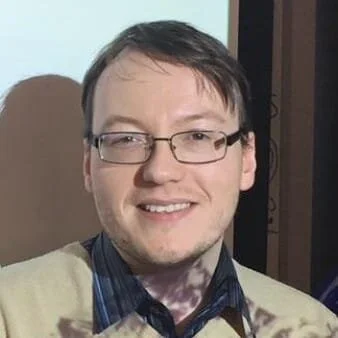Advocating for Research in the African Space Sector
The African space sector is currently undergoing a revolution. More actors across the continent are entering into the field, and evidence of this is ample, with 41 African satellites launched by 11 countries (Algeria, Angola, Egypt, Ethiopia, Ghana, Kenya, Morocco, Nigeria, Rwanda, South Africa, and Sudan) and two organisations (RascomStar and New Dawn), most of which were launched in the last decade, and almost all since the start of the 21st century. The African space sector is thus marked by a high degree of dynamism and innovation. Satellites are serving ever more needs, especially in the Earth observation and communication sectors, while capacity building remains a cornerstone of satellite projects. Simultaneously, numerous related sectors are blossoming. In institutional and policy terms, the African Union’s Space Policy and Strategy documents, Agenda 2063, and the newly founded African Space Agency, demonstrate that the continent has also been busy on this front.
A key part of this African revolution in the space sector is quality, timely research. Unfortunately, the continent underperforms in the research arena, and in 2018 Elsevier noted that Africa “still accounts for less than 1 percent of global research output” (see https://www.elsevier.com/connect/africa-generates-less-than-1-of-the-worlds-research-data-analytics-can-change-that). This is a major hurdle not only for the space sector, but for the growth and prospects of the African knowledge economy as a whole. Why is this so critical for space? Space cooperation and participation extends to the cooperative multi-lateral development of laws, rules, regulations and standards applicable to spatial activities, and in this regard scholarship plays a critical role. Apathy in this arena will jeopardise Africa’s future in the space sector. It is also unfortunately true that given Africa’s multiple challenges and competing needs, expenditure on space must constantly be justified, and constant advocacy among decision-makers for this sector as a critical role-player in meeting the continent’s development goals is required.
My involvement in here is fivefold. First, I conduct research for the European Space Agency via the European Space Policy Institute (ESPI, based in Vienna, Austria) on the African space sector. This is critical since there is a general lack of awareness of the rapidly growing and developing space sector across Africa, and the related opportunities, including creating new partnerships. In this regard, I have completed, along with my colleague Dr Annette Froehlich, the first volume in the Space Supporting Africa series as part of the broader Studies in Space Policy series (Springer publication, see: https://link.springer.com/book/10.1007/978-3-030-12173-0). The second and third volumes are currently underway, highlighting recent developments and how the space sector is supporting African development needs. Second, I am an associate editor of the Springer series Southern Space Studies, which features multiple publications per year, including the Space Fostering African Societies series, Outer Space and Popular Culture series, and the Space Fostering Latin American Societies series (see: https://www.springer.com/series/16025). In this regard, I strongly encourage members of Spacehubs Africa to see our regular calls for submissions (posted on Facebook: https://www.facebook.com/Southern-Space-Studies-100320424711427/) and to submit research work to editors@southernspacestudies.com in line with our style guides to take part and build the emerging African space scholarship. Third, I have taken part in 2019 and 2020 as a guest lecturer in the Space and Society course of the University of Cape Town’s SpaceLab MPhil specialising in Space Studies (see: http://www.spacelab.uct.ac.za/). My lectures focus on the African space sector, space supporting Africa, and the African space-education ecosystem. Fourth, I have also published on various aspects of the African space sector, including the space-education ecosystem for sustainability and the role of educational technologies, education via space-related games, new legal avenues to protect cultural and natural heritage in space, on-orbit servicing, and on the space sectors of Algeria, Morocco, Tunisia, and Zimbabwe (see my ORCID profile for related publication information: http://orcid.org/0000-0002-2352-4953). Fifth, I am currently busy with my doctorate in political studies at the University of Cape Town, focusing on the global south in space.
As such, I cannot stress enough that Africa needs more research output in the space sector. One useful measure of this is the Scimago Journal & Country Rank which uses the Scopus database to measure research output. As an example, in the Space and Planetary Science category, all of Africa produced 8,733 documents (defined as all types of documents, including citable and non-citable documents) between 1996 and 2019 (see: https://www.scimagojr.com/countryrank.php?category=1912®ion=Africa). In 2019 alone, the United States produced 10,323 documents in the same category. Of course, the reasons for this are clear, but it at least gives us an idea of how far we have yet to go before Africa can take its rightful place in the world and in the space sector, the basic principle here being that those who create the research shape the debates, and ultimately the world.
André Siebrits
André Siebritsis a South African researcher focusing on the space arena (especially in developing world contexts), as well as education and the use of educational technologies, and International Relations (particularly in the Global South). He is currently working with the European Space Policy Institute (Vienna), and has experience as an e-learning researcher and as an African political risk analyst.
UCT Profile: http://www.politics.uct.ac.za/node/1248911
LinkedIn: https://www.linkedin.com/in/andre-siebrits-a7a7ba41/
ORCID Research Profile: http://orcid.org/0000-0002-2352-4953

